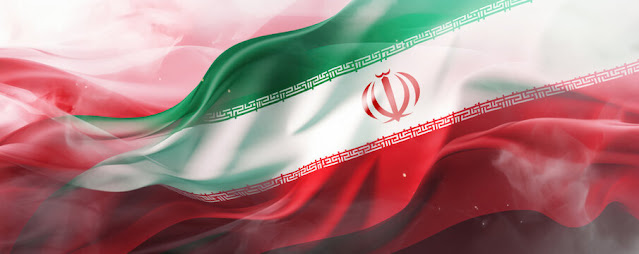Now I understand the reason.
Due to sanctions, Iran had limited resources, so it had to choose between spending heavily on air power or investing in its missile program.
Iran had to pick one: either the air force or missiles.
Why Didn’t Iran Build a Strong Air Force?
The air force was expensive, and conducting an air strike on Israel or engaging in aerial combat was nearly impossible. Crossing the airspace of several countries, launching an attack, refueling, and returning through those same airspaces was not feasible. That’s why, instead of investing in air power, it was strategically important for Iran to spend comparatively less money on missiles and defense systems.
Despite Israel’s advanced fighter jets and American missile technology, Iran’s missile capabilities have singlehandedly changed the scenario of warfare. The attacks by Israel on Iran are being carried out using air-to-air missiles from Israeli jets operating in the airspace of Iraq and Jordan. If media bias is set aside, Israeli aircraft have not been able to enter Iranian airspace after the first couple of days. This is due to Iran’s self-developed defense system, which has reportedly shot down four F-35 jets and a total of fourteen aircraft including drones and others.
The Impracticality of Air Strikes on Israel
Moreover, many major targets in Iran have survived Israeli bombing—undoubtedly due to Iran’s defense systems.
On the other hand, Iran has struck almost all of Israel’s major installations with its advanced missiles and has rendered Israel’s internal security network non-functional. According to Israel, 25 people died in today’s attack, while international media reports suggest the number is 50. This means the actual death toll could be over 100, with hundreds still missing under the rubble.
Without an air force, Iran has gained full aerial control over Israel using its dangerous missile system. Now, Iran can strike Israel anywhere, anytime, day or night.
Thirty thousand Israelis have already fled via sea, and more are escaping. If the war continues over the next few days and Iran maintains this barrage of missile attacks, Israel’s very existence will be in danger, and Hezbollah may enter through Lebanon by land. Iran will also have to target Israeli aircraft platforms or runways located outside Israel so that Israeli air power cannot support their ground forces.
As for the Western media’s propaganda and America’s threats of joining the war—these are only tactics to pressure Iran into a ceasefire. The U.S. will not make this mistake, fearing that it might face a surprise like Israel did, something that Trump is well aware of.
FAQ – Frequently Asked Questions
Q1: Why hasn't Iran focused on developing its air force?
A1: Due to limited resources and international sanctions, Iran prioritized missile and defense systems over expensive air force development.
Q2: What is the main threat Iran has been preparing for in the last two decades?
A2: Iran has mainly prepared for potential threats from Israel and nearby American military bases.
Q3: Why is an aerial attack on Israel from Iran considered nearly impossible?
A3: Because it would require crossing multiple countries' airspaces, refueling mid-air, and facing restricted access—making such operations unfeasible.
Q4: How has Iran compensated for its limited air power?
A4: Iran has developed a powerful missile system and local defense infrastructure capable of deterring and intercepting advanced aircraft like F-35s.
Q5: What impact have Iranian missile strikes had on Israel?
A5: Iran has reportedly hit major Israeli installations, disabled internal security networks, and caused significant casualties, leading to a mass exodus.
Q6: Has Iran’s defense system proven effective against Israeli attacks?
A6: Yes, Iran claims to have downed multiple Israeli jets and drones, preventing deep Israeli air incursions.
Q7: Could Hezbollah become involved in this conflict?
A7: If the war continues, there is a possibility that Hezbollah may enter Israel from Lebanon via land routes.
Q8: Will the U.S. join the war on Israel’s behalf?
A8: While the U.S. has issued warnings, actual involvement is unlikely due to fears of unexpected retaliation similar to what Israel has faced.
Q9: Is Iran now capable of striking Israel anytime?
A9: Yes, with its advanced missile systems, Iran claims the ability to strike any Israeli target at any time, without relying on air power.
Q10: What is the global reaction to the Iran-Israel conflict?
A10: Western media often shows bias, and international powers are pressuring for a ceasefire while monitoring the escalating situation closely.



